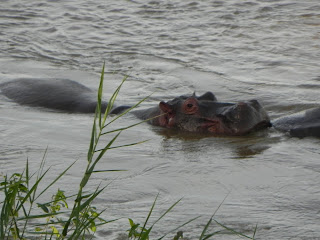I started medical school on Monday, and I do not want to miss the opportunity to write about that. Also, I no longer have anywhere near as much time as I did.
Since it's Friday, I'll do Seven Quick Takes about Medical School, in honor of Jen at Conversion Diary.
-1-
I'm in medical school! I have this realization every few hours and think once again how very lucky I am. My dream is happening, and it's wonderful.
-2-
Medical school is hard.
This semester, I am taking Biochemistry, Developmental Anatomy, Gross Anatomy, and Histology. This translates roughly to:
Biochemistry -
Chemistry on steroids and chemistry OF steroids,
Developmental Anatomy (aka "Devo") -
A Baby Story: the Little Blastocyst That Could,
Gross Anatomy -
There are twelve thoracic vertebrae. Each has two costal facets that articulate with the ribs. These sit superior and anterior to the pedicle and lamina, which form the intervertebral fosamina, through which run the spinal nerves. The greater dorsal nerve runs distally to the suboccipital triangle, made of the rectus capitis posterior major muscle, the obliquus capitis superior muscle, and the obliquus capitis inferior muscle. The transverse process of the atlas runs laterally through the triangle, just inferior to the vertebral artery and the suboccipital nerve.
Didn't know this? Neither did I, two days ago.
Didn't know this? Neither did I, two days ago.
Histology (aka "Histo") -
SO MANY CELLS. 400 CELLS.
-3-
The medical students I've met are uniformly brilliant, dedicated, and hardworking. It's fun to be in class and know everyone there cares just as much as you do and is studying every bit as hard.
-4-
Much of what I learned in college about how to learn is wrong. Well, it's right if you're studying math. But it's not right if you're studying medicine.
Studying math is like trying to uproot a tree. You have to know the layout and understand the theory of trees and think really hard and have the right tools, and then in a burst of effort, the tree comes out.
Studying medicine is more like finding that 10,000 weeds have popped up in your yard. You work really hard and pull up all the ones you can find, trying to get the roots out but not spend too much time on any one. The next morning, there are 10,000 weeds in your yard...
Studying medicine is more like finding that 10,000 weeds have popped up in your yard. You work really hard and pull up all the ones you can find, trying to get the roots out but not spend too much time on any one. The next morning, there are 10,000 weeds in your yard...
So I'm not doing as well as I thought I would. My brain is honed to learn mathematics. I'm counting on the flexibility of the human brain to let me rewire things posthaste.
-5-
Being allowed to dissect a human cadaver is a supreme privilege like no other. It's a tremendous honor to be allowed this form of intimacy with this person's body that even she never had.
It's also a fantastic way to learn.
-6-
Being allowed to dissect a human cadaver makes you reek. I've dedicated a set of scrubs and the lab coat they gave us to just gross anatomy lab. When I'm not wearing them, they live in a sealed trash bag in my locker at the school.
I don't think I can do much to get that smell out of my hair, though.
-7-
Medical school is taking my life from me completely. I've abandoned hobbies, down time, and socializing to keep up with it.
But I can give up those things. I just can't give up medicine. It's an easy trade.
Have a good weekend, everyone!





















